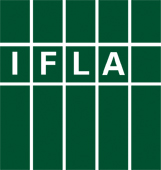 International Federation of Library Associations, Link (CC-BY)
International Federation of Library Associations, Link (CC-BY)
The work of libraries relies on the existence of a modern and complete set of exceptions and limitations to copyright. While national legislation is usually the responsibility of national parliaments and policy-makers, the influence of International trade deals – and Treaties – is significant.
The North American Free Trade Agreement (NAFTA) – currently under renegotiation – is no exception.
Last month, a group of copyright experts, library associations, and civil society advocates met in Washington. They analysed the relationship between trade deals and copyright in a digital era, focusing in particular on the impact of the proposals on the table in the ongoing discussions about NAFTA.
Discussions focused on the need for trade negotiators to support flexible and modern copyright exceptions that enable access to knowledge, innovation and creativity in a digital environment.
Making the Case for Libraries
Given libraries’ unique role in preserving and giving access to culture, knowledge and heritage, IFLA – through International Leaders Programme associate Jonathan Hernandez-Perez – and other library representatives played an active part in the discussions. They stressed the need for libraries to be able to make full use of digital materials and and to make copies for users involved in education, reesarch and other public interest activities.
As professor Sean Flynn of American University, Washington (and organiser of the meeting) argued: “Most people don’t realize that everyday tools like social media, search engines, and internet archives rely on balanced copyright policies like fair use and safe harbor provisions. In a world that increasingly relies on the internet, global citizens need to access digital content for education, research, and culture. NAFTA and other trade agreements should not export a one-sided copyright policy, but instead reflect the digital realities of the 21st century”.
The Benefits of Balance
A key input to the discussions came from the User Rights Database, a major research effort comparing the evolution of exceptions and limitations to copyright around the world with overall economic and innovation performance.
This found that while almost all countries are trending toward more open copyright user rights over time, wealthier states are about thirty years ahead of developing countries. There are also indications that more open copyright user rights generate broader benefits, including more rapid development of high technology industries, innovation and scholarly publication.
Principles on Copyright Balance
Following the meeting, participants collaborated to produce the Washington Principles on Copyright Balance in Trade Agreements. These highlight the following priorities:
- Protect and promote copyright balance
- Provide technology-enabling exceptions
- Require flexible intermediary safeguards
- Ensure that technological protection measures permit user rights
- Reflect multilateral commitments on copyright term
- Guarantee proportionality and due process
IFLA has endorsed these principles, alongside Library associations from all NAFTA members, notably the Canadian Association of Research Libraries, the Library Copyright Alliance, the American Library Association, the Association of Research Libraries and the Mexican National College of Librarians (CNB).
Find out more about IFLA’s work on exceptions and limitations to copyright.




